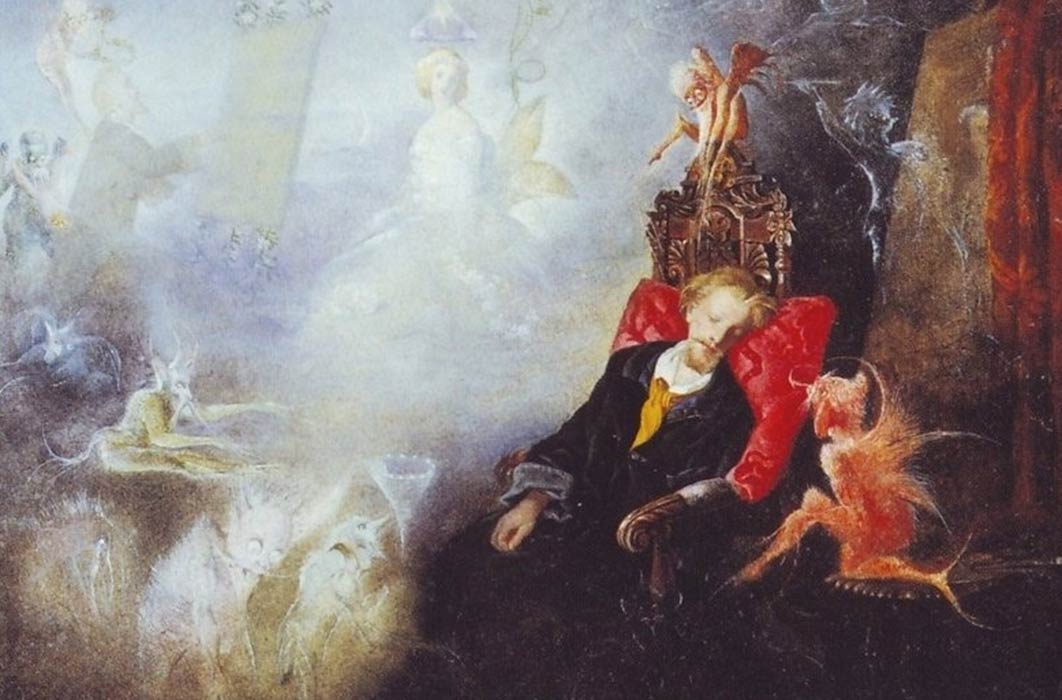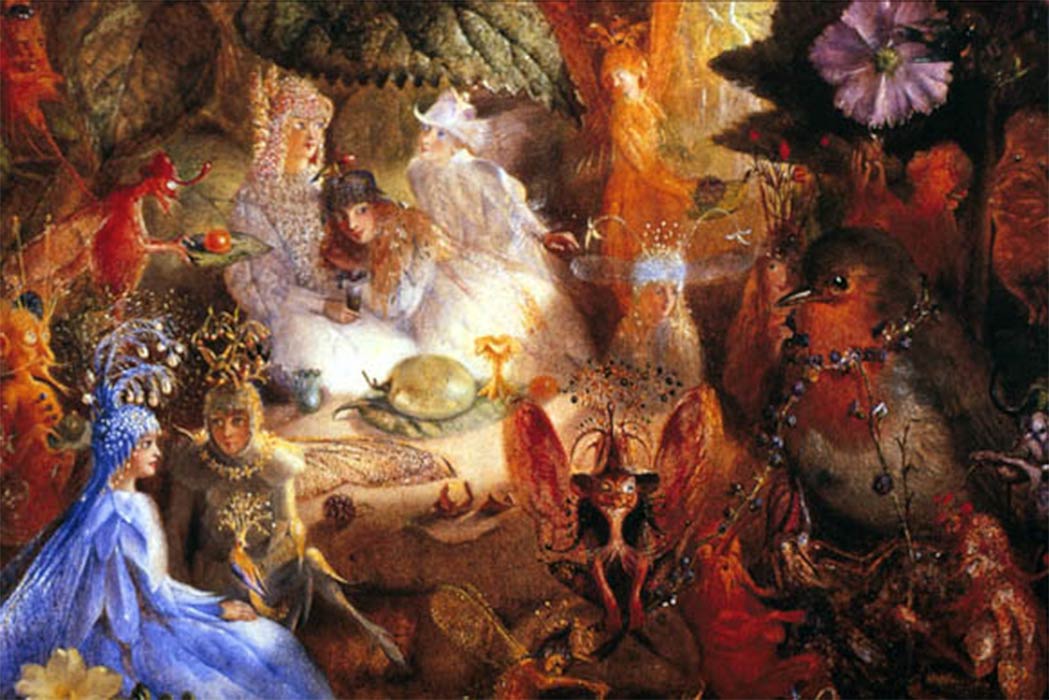
Chronicling British and Irish Faerie Folklore From The Middle Ages To Modern Day
Faerie-type entities have always been an important component of British and Irish folklore. In the Aarne-Thompson-Uther Motif Index of Folk Literature (ATU) there are over 500 motifs within folktales that include the faeries, many of which are from Britain and Ireland. Whatever the true ontology of these supernatural entities, it is evident they have had an intrinsic cultural role throughout recorded history and played a part in the storytelling of every generation since the Middle Ages, and perhaps even earlier. The folklore collected by Medieval chroniclers was almost certainly the culmination of centuries of oral tradition, and by the time it was recorded in earnest from the 19th century, it represented belief systems stretching back at least a thousand years.

The captive robin by John Anster Fitzgerald (1864) (Public Domain)
Despite the continuation through history of the oral tradition, one is reliant, primarily, on the written record for an understanding of the faeries’ cultural representation. And the faeries can be found in a range of sources as a consistent folkloric taxonomy; their roles and appearance may change through time, but they are always recognizable in their phenomenology. Whoever is collecting the folklore – and this can sometimes be an accidental collection - there is a concession and awareness of what they represent. Although framing their research in different ways, the folklorists of the 19th-21st centuries would recognize the faeries of Medieval chroniclers or Early-Modern commentators as being of the same category of beings they were investigating. It is in Britain and Ireland that some of the first folkloric testimonies of the faeries found their way into the written record.




